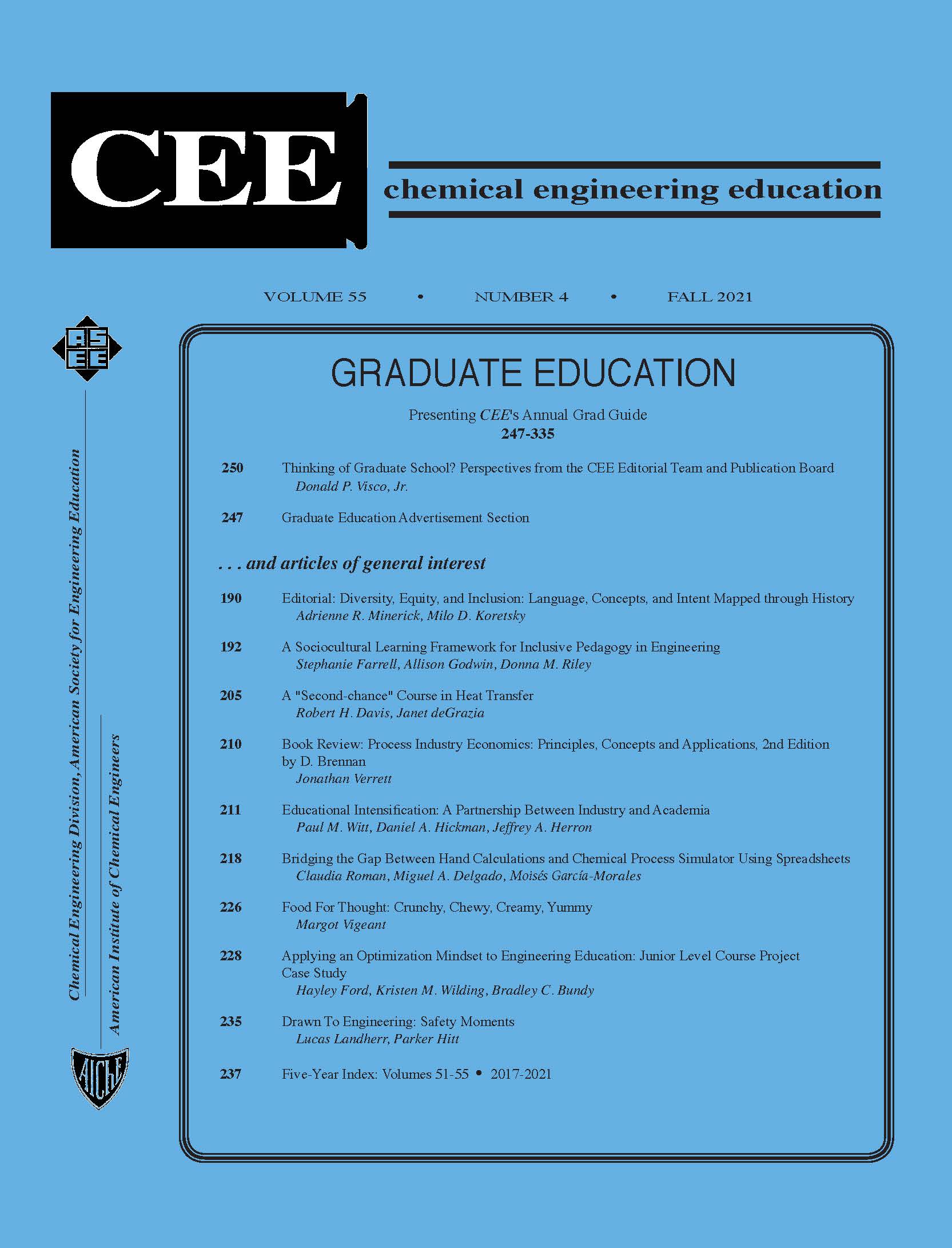A Sociocultural Learning Framework for Inclusive Pedagogy in Engineering
DOI:
https://doi.org/10.18260/2-1-370.660-128660Abstract
This paper describes a sociocultural learning framework for classroom inclusion based on research in three interconnected areas: learner identity, classroom context, and engineering culture. This paper is intended to serve as a resource for CEE authors to incorporate research-based inclusive pedagogy into the design and implementation of their chemical engineering education efforts.


